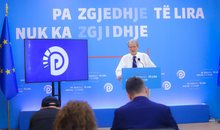
Why have some of Tehran's key allies stayed out of the Israel-Iran conflict?
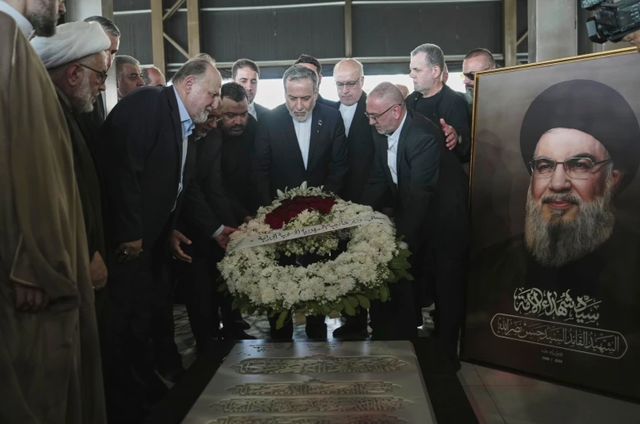
Hezbollah has long been seen as Iran's first line of defense in the event of a war with Israel. But since Israel launched its massive attacks on Iran, sparking the ongoing Israel-Iran war, the Lebanese militant group has stayed out of the fray - even after the US entered the conflict on Sunday with strikes on Iranian nuclear sites.
A network of powerful Iranian-backed militias in Iraq has also remained largely quiet.
Domestic political concerns, as well as heavy losses suffered in nearly two years of regional conflicts and turmoil, appear to have led these allies of Iran to be sidelined in the latest round that is shaking the region.
"Despite all the inhibiting factors, wild cards remain ," said Tamer Badawi, a fellow at the Center for Applied Research in Partnership with Orient, a research organization based in Germany.
This is especially true after the US intervened with attacks on three nuclear facilities in Iran.
"Axis of Resistance"
Hezbollah was formed with Iranian support in the early 1980s as a guerrilla force fighting against Israel's occupation of southern Lebanon at the time.
The militant group helped drive Israel out of Lebanon and built up its arsenal over the following decades, becoming a powerful regional force and the center of a group of Iranian-backed factions and governments known as the "Axis of Resistance."
Allies also include Iraqi Shiite militias and Yemen's Houthi rebels, as well as the Palestinian militant group Hamas.
At one point, Hezbollah was believed to have around 150,000 rockets and missiles, and the group's former leader, Hassan Nasrallah, once boasted that it had 100,000 fighters.
Seeking to aid its ally Hamas following the October 7, 2023, attack by Palestinian militants on southern Israel and Israel's offensive in Gaza, Hezbollah began firing rockets across the border.
This prompted Israeli airstrikes and shelling, and the exchanges escalated into full-scale war last September. Israel inflicted heavy casualties on Hezbollah, killing Nasrallah and other top leaders and destroying much of its arsenal, before a U.S.-brokered ceasefire ended the conflict last November. Israel continues to occupy parts of southern Lebanon and conduct near-daily airstrikes.
For their part, Iraqi militias occasionally attacked bases housing American troops in Iraq and Syria, while Yemen's Houthis fired on ships in the Red Sea, a vital global trade route, and began targeting Israel.
Maintaining an ambiguous stance
Hezbollahu ka dënuar sulmet e Izraelit dhe sulmet e SHBA-së ndaj Iranit. Vetëm disa ditë para sulmit të SHBA-së, udhëheqësi i Hezbollahut, Naim Kassem, tha në një deklaratë se grupi "do të veprojë siç e konsideron të përshtatshme përballë këtij agresioni brutal izraelito-amerikan".
Një deklaratë e lëshuar nga grupi pas sulmeve të SHBA-së, u bëri thirrje "vendeve arabe dhe islamike dhe popujve të lirë të botës" të mbështesin Iranin, por nuk sugjeroi që Hezbollahu do t'i bashkohej hakmarrjes së Teheranit.
Zyrtarët e qeverisë libaneze i kanë bërë presion grupit që të qëndrojë jashtë konfliktit, duke thënë se Libani nuk mund të përballojë një luftë tjetër dëmtuese, dhe i dërguari i SHBA-së Tom Barrack, i cili vizitoi Libanin javën e kaluar, tha se do të ishte një "vendim shumë i keq" për Hezbollahun të përfshihej.
Milicia Kataib Hezbollah e Irakut - një grup i veçantë nga Hezbollahu - kishte thënë para sulmit të SHBA-së se do të synonte drejtpërdrejt interesat dhe bazat e SHBA-së të shpërndara në të gjithë rajonin nëse Uashingtoni përfshihet. Grupi gjithashtu ka heshtur që nga sulmet e së dielës.
Huthitë muajin e kaluar arritën një marrëveshje me Uashingtonin për të ndaluar sulmet ndaj anijeve amerikane në Detin e Kuq në këmbim të ndërprerjes së sulmeve të SHBA-së në Jemen, por grupi kërcënoi të rifillonte sulmet e tij nëse Uashingtoni hynte në luftën Iran-Izrael. Në një deklaratë të dielën, byroja politike e Houthëve e përshkroi sulmin e SHBA-së ndaj Iranit si një "përshkallëzim të rëndë që përbën një kërcënim të drejtpërdrejtë për sigurinë dhe paqen rajonale dhe ndërkombëtare". Houthët nuk nisën menjëherë sulme.
Arsyet për të qëndruar në anë
Hezbollahu u dobësua nga luftimet e vitit të kaluar dhe pasi humbi një rrugë të madhe furnizimi për armët iraniane me rënien e Presidentit sirian Bashar Assad, një aleat kyç, në një ofensivë të shpejtë rebele në dhjetor.
"Hezbollahu është degraduar në nivel strategjik ndërsa është shkëputur nga zinxhirët e furnizimit në Siri", tha Andreas Krieg, një analist ushtarak dhe profesor i asociuar në King's College London.
Megjithatë, Qassem Qassir, një analist libanez i afërt me Hezbollahun, tha se një rol për grupin militant në konfliktin Izrael-Iran nuk duhet të përjashtohet.
"Beteja është ende në fazat e saj të hershme", tha ai. "Edhe Irani nuk ka bombarduar bazat amerikane (në përgjigje të sulmeve të SHBA-së), por përkundrazi ka bombarduar Izraelin."
Ai tha se si Huthit ashtu edhe milicitë irakiane “nuk kanë aftësinë strategjike për sulme të thella kundër Izraelit që dikur e kishte Hezbollahu”.
Renad Mansour, një bashkëpunëtor i lartë kërkimor në grupin e ekspertëve Chatham House në Londër, tha se milicitë irakiane, të lidhura me Iranin, janë përpjekur gjatë gjithë kohës të shmangin përfshirjen e vendit të tyre në një konflikt të madh.
Unlike Hezbollah, whose military wing has operated as a non-state actor in Lebanon - although its political wing is part of the government - the main Iraqi militias are members of a coalition of groups that are officially part of the state's defense forces.
“Things in Iraq are good for them right now, they are connected to the state - they are benefiting politically, economically,” Mansour said. “And also they have seen what has happened to Iran, Hezbollah, and they are worried that Israel will come back to them as well.”
Badawi said that for now, the armed groups may remain hidden because "Iran likely wants these groups to remain intact and functional."
"But if Iran suffers insurmountable losses or if the Supreme Leader (Ayatollah Ali Khamenei) is killed, these could act as triggers ," he said.
Taken from the Associated Press
Latest news

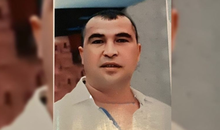
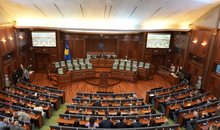
The 36th attempt fails, Kosovo still without a new Parliament
2025-06-23 12:17:11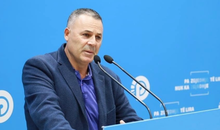
Recount/ Dogjani clashes with Ilir Rusmal: Steal votes, with what right?
2025-06-23 11:59:50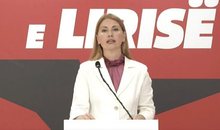
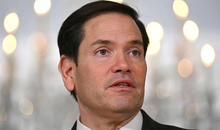
US asks China to stop Iran from closing Strait of Hormuz
2025-06-23 11:10:34
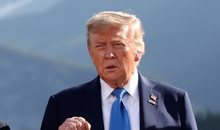
Trump talks about possible regime change in Iran after US bombings
2025-06-23 10:35:46
Presented at SPAK Majlinda Bufi
2025-06-23 10:18:30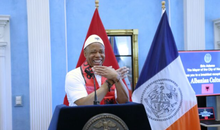
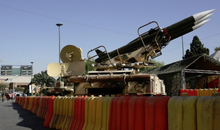
Iranian generals threaten US with 'decisive response'
2025-06-23 09:46:00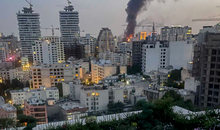
4 more Albanians evacuated from Israel
2025-06-23 09:31:11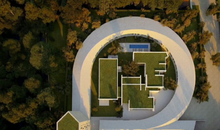
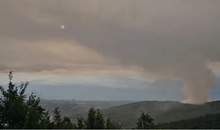
Fire at the waste landfill in Kukës, plumes of smoke spread towards the city
2025-06-23 08:52:12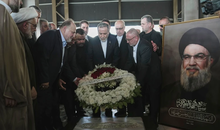
Why have some of Tehran's key allies stayed out of the Israel-Iran conflict?
2025-06-23 08:34:20
Sterilization PPP nears closure, real cost 53% more than contract
2025-06-23 08:19:00
Gunshot wound in Shkodra, perpetrator flees
2025-06-23 08:04:44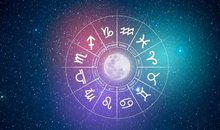
Horoskopi, çfarë kanë rezezervuar yjet për ju sot
2025-06-23 07:50:28
Temperatures up to 36 degrees, weather forecast for today
2025-06-23 07:40:11
Morning Post/ In 2 lines: What mattered yesterday in Albania
2025-06-23 07:22:30
Krim brenda familjes në Greqi, 61-vjeçari vret prindërit e tij të moshuar
2025-06-22 21:57:48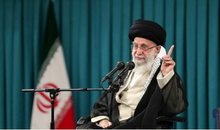
US airstrikes/ Iran warns: The game is not over!
2025-06-22 21:29:22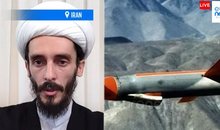
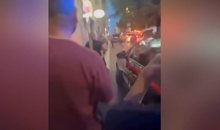
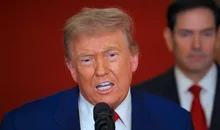
The US is involved in the war, why did Trump take the risk of attacking Iran?
2025-06-22 20:28:22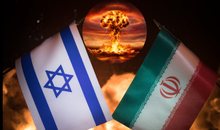
Israel-Iran conflict increases global tensions: Is the Albanian economy at risk?
2025-06-22 20:02:04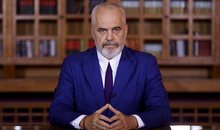
The US bombed Iran/ Rama: I support Trump's sincere efforts!
2025-06-22 19:40:21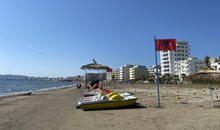
Bosnian tourist drowns in Durres
2025-06-22 19:05:48
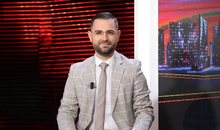
The 10 strongest criticisms of the PACE report on the May 11 elections!
2025-06-22 18:41:21
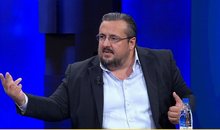
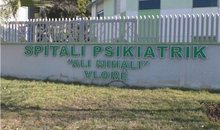
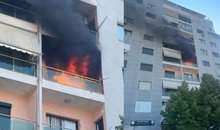
An apartment in Yzberisht is engulfed in flames
2025-06-22 17:32:13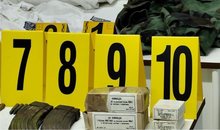
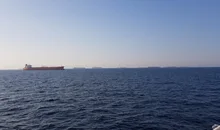

Rinderpest/ The number of outbreaks rises to 10, here are the affected districts
2025-06-22 16:25:12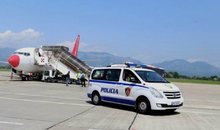
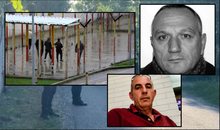
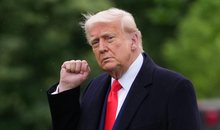
"Trump has opened Pandora's box"
2025-06-22 15:10:04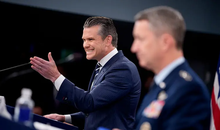

Pope Leo XIV: Stop the tragedy of war before it becomes an irreparable abyss
2025-06-22 14:24:22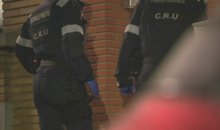
Criminal group busted in Belgium, 10 Albanians among those arrested
2025-06-22 14:00:58
Cities race for tourists, Tirana cheapest, but busiest
2025-06-22 13:35:53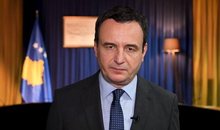
Kurti supports US strike: International security needs fewer nuclear weapons
2025-06-22 13:18:54
Selling drugs in the former Bllok, 23-year-old arrested
2025-06-22 12:57:58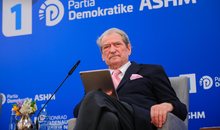
Berisha supports US strike on Iran: Strong call for overthrow of dictatorship
2025-06-22 12:39:35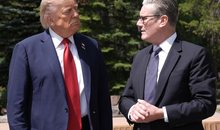
Starmer supports US attack on Iran, calls on Tehran to return to negotiations
2025-06-22 12:20:56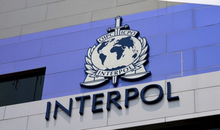
Sentenced to 8 years in prison in Italy, 33-year-old Albanian arrested
2025-06-22 11:54:45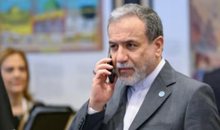
Iran condemns US attack on nuclear facilities, warns of consequences
2025-06-22 11:34:21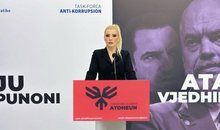
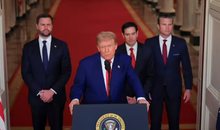
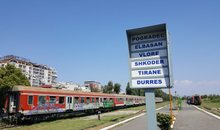
Albanian Railways is affected by collective staff cuts
2025-06-22 10:46:46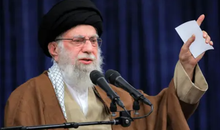
The US has changed the course of the conflict - how will Iran respond?
2025-06-22 10:24:26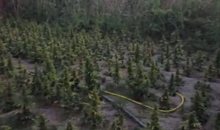
Cannabis in drainage canals, 48-year-old arrested in Fier
2025-06-22 10:06:41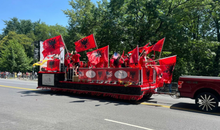
Albanians 'invade' New York, thousands march in the Red and Black parade
2025-06-22 09:44:26
Foreign exchange, the rate at which foreign currencies are sold and bought
2025-06-22 09:27:27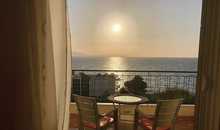
Is it worth buying an apartment to rent out?
2025-06-22 09:12:40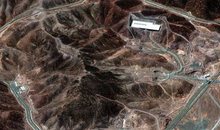
US bombs Iran, hits three Tehran nuclear sites
2025-06-22 08:53:08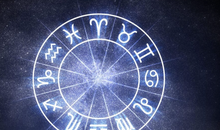
Horoscope, what do the stars have in store for you today?
2025-06-22 08:35:50
Weather forecast/ How temperatures will change during the day
2025-06-22 08:20:43
Morning Post/ In 2 lines: What mattered yesterday in Albania
2025-06-22 08:00:29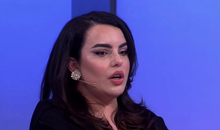
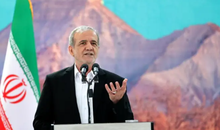
Iranian President: We will not stop nuclear program
2025-06-21 21:46:32
Europe hit by first heat wave: Up to 40°C expected this weekend
2025-06-21 21:19:19
Borussia Dortmund claim first win in Club World Cup
2025-06-21 20:56:04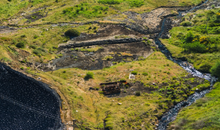

Accident on the Puka-Shkodra axis, two injured
2025-06-21 20:05:04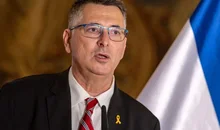
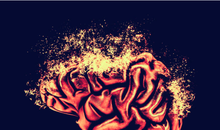
ChatGPT can damage your brain, here's what the study says
2025-06-21 19:20:25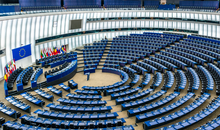
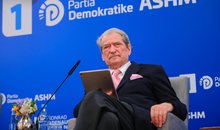

Belarus opposition leader released after five years in prison
2025-06-21 18:22:57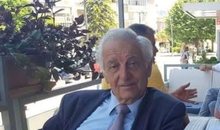
Renowned journalist and teacher in Korça, Vehbi Furxhi, passes away
2025-06-21 18:06:16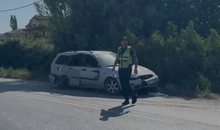
Accident in Fier-Levan, two injured
2025-06-21 17:43:25
Tourism in traffic, when roads undo success
2025-06-21 17:25:31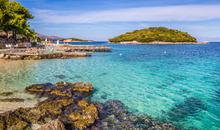
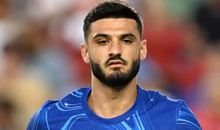
Broja on the verge of leaving Chelsea, 4 teams in talks for midfielder
2025-06-21 16:42:02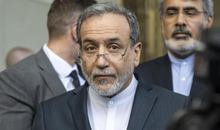
Iran confirms death of tenth nuclear scientist
2025-06-21 16:24:28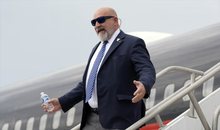
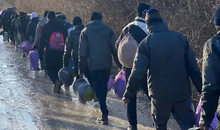
The Balkans as a warehouse for migrants?
2025-06-21 15:49:53
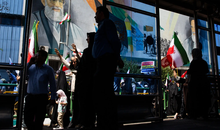
Khamenei names potential successors if he is killed
2025-06-21 15:10:58
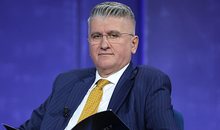

Memli Krasniqi re-elected as PDK chairman
2025-06-21 14:29:12

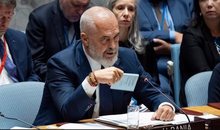
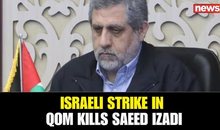
Israel says it has eliminated another top Iranian commander
2025-06-21 12:43:26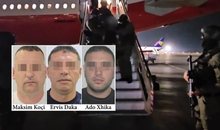
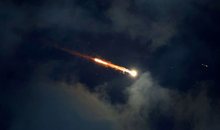
Iran and Israel exchange new attacks, Tehran rejects talks with the US
2025-06-21 12:00:20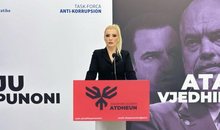
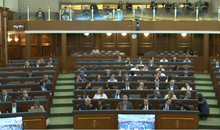
The impasse continues, the constitution of the Assembly fails for the 35th time
2025-06-21 11:14:23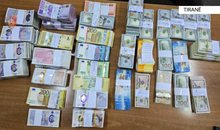
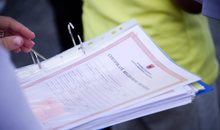
Report: Cadastre ignores Parliament and ALSAI recommendations
2025-06-21 10:35:59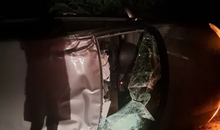
Car loses control on Tepelena-Kelcyrë road, driver injured
2025-06-21 10:14:47
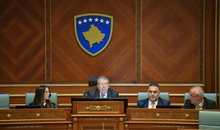
It failed 34 times, today a new attempt to constitute the Kosovo Assembly
2025-06-21 09:37:02
